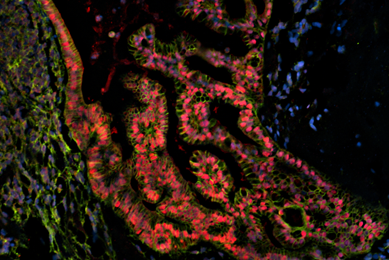Why it's important
As compared to traditional cancer therapies, IO therapies are more targeted and offer long-lasting memory to the immune system enabling it to continue fighting against cancer cells even after remission.Inhibition of immune checkpoints are one of the most promising approaches to unleash the potential of the anti-tumor immune response. Immune checkpoint inhibitors are monoclonal antibodies that bind to checkpoint molecules on the surface of immune and tumor cells. Tumor cells utilize immune checkpoints to suppress immune response and increase survival. There are several established and novel checkpoint molecules being studied to create cancer immuno therapeutics.
Challenges
Although immune checkpoint blockers have exhibited anti-tumor effects in multiple cancer types, there are still challenges to overcome such as drug resistance, low response rate, and T cell exhaustion. In addition, clinical studies have shown that the efficacy of these treatments vary depending on cancer type. There is a need for comprehensive data on the expression levels of checkpoint molecules based on disease progression, which can be utilized to guide specific treatment plans and combinatorial therapies.What’s the solution?
A novel IO therapy that has displayed remarkable efficacy in treating malignant cancers, particularly liquid tumors, is Chimeric antigen receptor (CAR)-T cells. CAR-T cells are a “living” therapeutic using the patient’s immune system to recognize specific tumor associated antigens and redirect the engineered T cells to induce apoptosis in tumor cells.1 Considerable research efforts have been invested into developing new CAR structures to increase the scope of targeted cancer types and raise their anti-tumor efficacy.2 Evaluating the biofunction of CAR-T cells in vitro typically involves a series of labor-intensive co-culture experiments and immunoassays, where reproducibility remains a challenge during the validation of new CAR-T cells due to donor-to-donor variations and other possible factors.3How we can help
To address these challenges, ATCC provides a large portfolio of fully characterized and authenticated cell lines, human primary cells, and more advanced cell models that can be used for discovery and development of IO therapies. Our newest models are five CAR-T Target Luciferase Reporter Cell lines engineered from human cancer cell lines containing naturally expressed tumor antigen targets (CD19, CD20, and HER2), which are commonly used for CAR-T cell development. These reporter cell lines can be used as the target cells for the evaluation of the activities of CAR-T cells in vitro and other immuno-oncology assays, such as Antibody Dependent Cellular Cytotoxicity (ADCC). These cells enable immuno-therapeutic breakthroughs by allowing the monitoring of potency and efficacy of candidate CAR-T effector cells in cytotoxicity and cell viability assays in real time.
New CAR-T Target Luciferase Reporter Cells
What’s next?
Additional models will be available in the near future for high endogenous expression of checkpoint inhibitory and co-stimulatory expression levels. These products include a wide range of IO targets such as: PDL1/2, B7-H3, PD1, CTLA-4, and others. These novel cell lines can be incorporated into simple blocking assays or be integrated into sophisticated co-culture cell-based drug screening assays. ATCC recognizes the formidable roadblocks that IO researchers encounter in their fight against cancer, and we feel strongly that these new cell lines will help to mitigate the challenges, thus clearing the way for investigators to better study and treat diseases. For more information on current and future Immuno-oncology products please visit us in Boston at SITC 2022 to see what ATCC can do to support your drug development efforts.
Did you know?
ATCC now distributes more than 250 advanced cancer models from the Human Cancer Models Initiative.
Drug discovery experts
Catherine Fox, BS, MBA
Segment Marketing Specialist, ATCC
Catherine works to enable the go-to-market strategy for ATCC products and services that can help researchers working in biopharmaceutical and drug discovery spaces. She works collaboratively with scientists to translate unmet needs to find better solutions. Catherine has a BS in Biology with a minor in Chemistry from Virginia Commonwealth University and received her MBA from George Mason University.
Shalmica Jackson, PhD
Marketing Segment Manager, ATCC
Shalmica Jackson, PhD is the Marketing Segment Manager for Drug Discovery and Development at ATCC. Shalmica is responsible for driving revenue growth for the biopharmaceutical industry through the development of relevant offerings, marketing strategies and execution of associated marketing plans worldwide. She received her PhD in Molecular and Integrative Physiology and Toxicology from the University of Kansas Medical Center, and completed a Postdoctoral Fellowship in Cell Biology at the University of Texas Southwestern Medical Center. She has over 20 years of experience in the life science industry, serving as a Senior R&D Scientist in drug development for 10 years before transitioning into marketing.
Dig deeper into IO resources
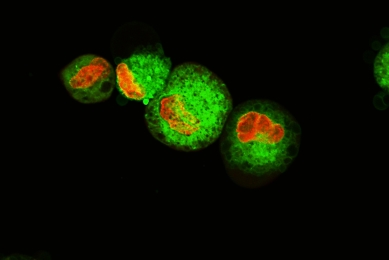 Application note
Application note
Luciferase Reporter Cancer Cell Lines Facilitate CAR-T Development
This report describes ATCC luciferase reporter solid and liquid tumor cell lines that express tumor antigens such as CD19, CD20, and HER2. Learn how you can incorporate these target cells into your T-Cell cytotoxicity assays to enable your breakthroughs in immuno-oncology.
More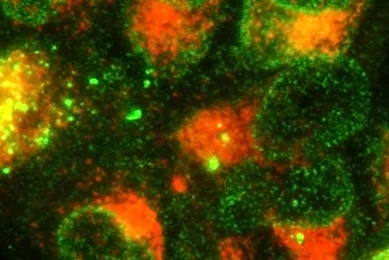 Webinar
Webinar
Luciferase Reporter Cancer Cell Lines: Facilitate Your CAR-T Development Webinar
Watch the presentation to see the responses of tumor cell lines to several immunotherapies in a co-culture assay system with a human CD4+ T cell line and primary CD8+ T cells, demonstrating a unique and effective approach for checkpoint assay development.
More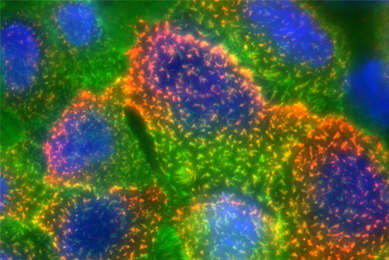
Advanced Cancer Models
Advanced cancer models mimic the behavior of cancer and are paired with genomic and phenotypic data. These authenticated models, including organoids from the Human Cancer Models Initiative (HCMI) contribute to research that is more valuable and reproducible than in the past.
More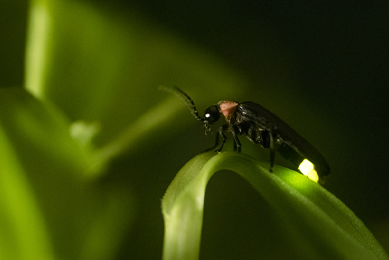
Luciferase-labeled Cells
Luciferase-labeled cell lines are a simple and highly sensitive means to measure biological processes and to assess drug efficacy in animal models through bioluminescence imaging. ATCC’s luciferase-reporter cell lines offer new tools for both in vitro luminescent assays and in vivo live animal bioluminescent imaging.
MoreReferences
1. Kiesgen S, et al. Comparative analysis of assays to measure CAR T-cell-mediated cytotoxicity. Nat Protoc 16: 1331-1342, 2021. PubMed: 335898262. Jackson HJ, et al. Driving CAR T-cells forward. Nat Rev Clin Oncol 13: 370-383, 2016. PubMed: 27000958
3. Sterner RC, Sterner RM. CAR-T cell therapy: current limitations and potential strategies. Blood Cancer J 11: 69, 2021. PubMed: 33824268
